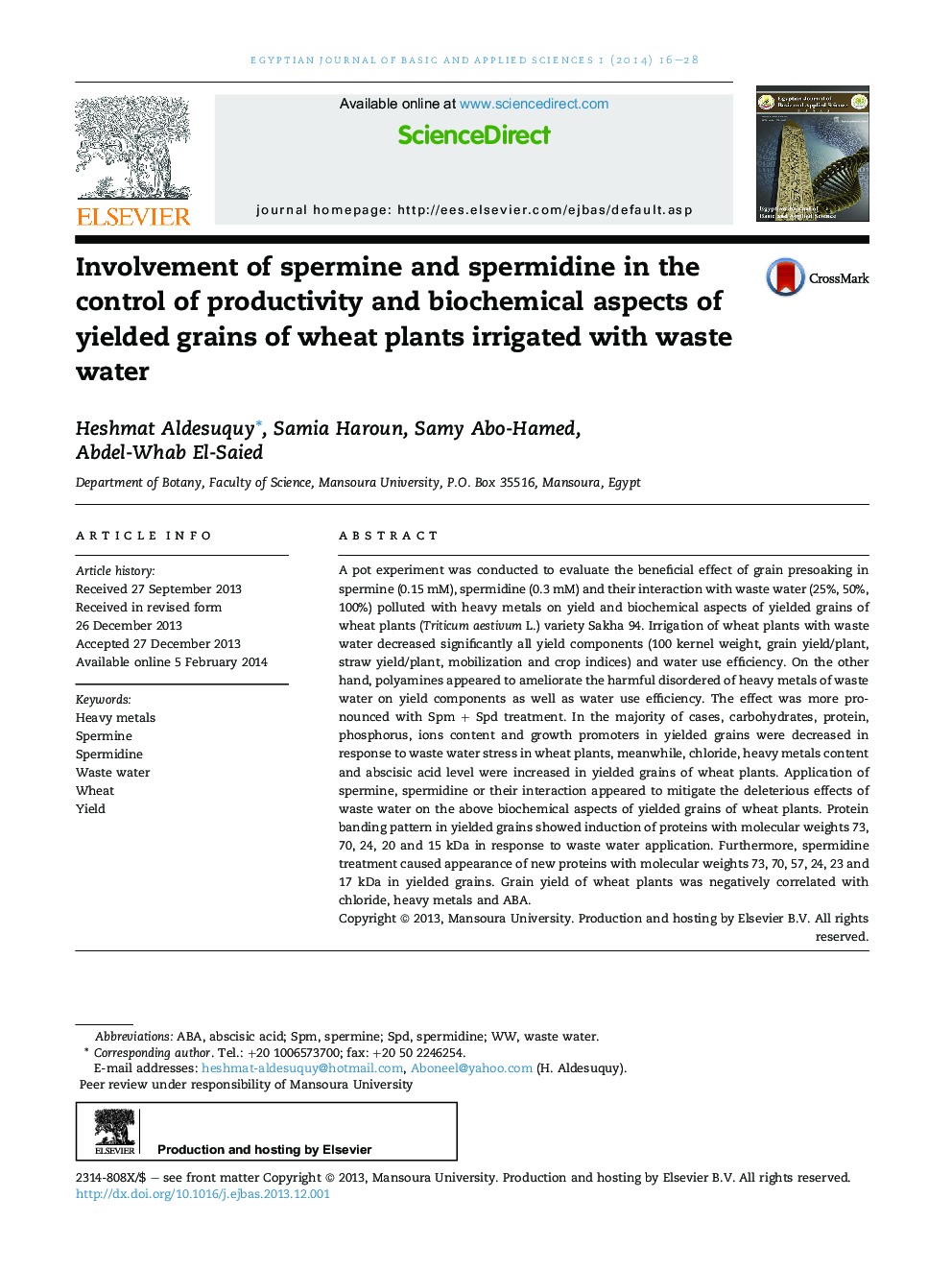| Article ID | Journal | Published Year | Pages | File Type |
|---|---|---|---|---|
| 561037 | Egyptian Journal of Basic and Applied Sciences | 2014 | 13 Pages |
A pot experiment was conducted to evaluate the beneficial effect of grain presoaking in spermine (0.15 mM), spermidine (0.3 mM) and their interaction with waste water (25%, 50%, 100%) polluted with heavy metals on yield and biochemical aspects of yielded grains of wheat plants (Triticum aestivum L.) variety Sakha 94. Irrigation of wheat plants with waste water decreased significantly all yield components (100 kernel weight, grain yield/plant, straw yield/plant, mobilization and crop indices) and water use efficiency. On the other hand, polyamines appeared to ameliorate the harmful disordered of heavy metals of waste water on yield components as well as water use efficiency. The effect was more pronounced with Spm + Spd treatment. In the majority of cases, carbohydrates, protein, phosphorus, ions content and growth promoters in yielded grains were decreased in response to waste water stress in wheat plants, meanwhile, chloride, heavy metals content and abscisic acid level were increased in yielded grains of wheat plants. Application of spermine, spermidine or their interaction appeared to mitigate the deleterious effects of waste water on the above biochemical aspects of yielded grains of wheat plants. Protein banding pattern in yielded grains showed induction of proteins with molecular weights 73, 70, 24, 20 and 15 kDa in response to waste water application. Furthermore, spermidine treatment caused appearance of new proteins with molecular weights 73, 70, 57, 24, 23 and 17 kDa in yielded grains. Grain yield of wheat plants was negatively correlated with chloride, heavy metals and ABA.
